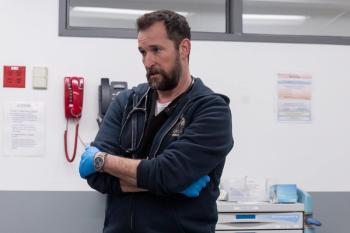
Doctors are facing an invasion of misinformation
Most doctors say they are seeing more misinformation from patients, and it’s a bigger problem for rural doctors. Dr. Gary Price of The Physicians Foundation talks about the problem.
More doctors are encountering misinformation from their patients.
Six out of 10 doctors (61%) say their patients were influenced by misinformation or disinformation by at least a moderate amount over the past year, according to
“Our physicians are seeing this invasion, if you will, of misinformation, into their offices and into the exam room with their patients,” Price tells Chief Healthcare Executive®.
The foundation surveyed more than 1,000 doctors, and the vast majority (86%) say that medical misinformation and/or disinformation has risen in the past five years. More than half (57%) said that misinformation is having an impact on their ability to care for their patients.
“I can tell you this, this is a daily event in any physician's practice,” Price says.
The foundation is hoping to raise awareness of the need to confront misinformation, which is inaccurate but not necessarily ill-intentioned, and disinformation, which is intended to deceive.
Rural doctors are seeing the problem more than other physicians, but it’s a problem everywhere, Price says.
Nearly four in 10 (38%) of rural doctors say they are facing “a great deal” of misinformation from patients, while that sentiment is shared by a quarter (25%) of urban doctors and 21% of suburban doctors.
It's a grave problem, and doctors may not recognize how to face it.
(See part of our conversation with Dr. Price in this video. The story continues below.)
Contributing factors
Price points to misinformation and polarization during the COVID-19 pandemic, as well as Americans finding misinformation online and through generative AI.
“This is a problem that's become pervasive in our society,” Price says. “In the realm of public health, though, and trying to deliver high quality care, it's become a real problem, and I think the study underscores that, and I hope brings attention to something new that's really having a major impact on all of our lives and health.”
Misinformation in medicine has persisted for centuries, Price says. But the pandemic posed different obstacles, as critics of vaccines accused doctors and health systems of working against the public.
“Some of this disinformation that we heard during the pandemic, and I think this was universal, some of it really went at the core of why physicians went into medicine,” Price says.
“When you have a patient telling you they believe something like the whole medical profession is conspiring to make patients sick with the vaccine, it's pretty hard not to have an emotional reaction, because that's a fundamental rejection of the most basic things that drove you to practice medicine, and it is hard to learn not to react emotionally to that.”
People can search the web for answers on medical questions, which may or may not yield accurate results.
And now the popularity of ChatGPT and other AI tools potentially adds to the challenge of misinformation, Price says.
“I think AI is so new that we really don't have a firm handle on that,” Price says. “I don't think we truly understand what it does and how well it does … but the problem is it's evolving almost on a daily basis. I think we're still very much in a catch-up mode just for social media and AI is going to complicate this even more. Maybe it might be part of the solution. It might add to the problem.”
‘Problem for all physicians’
Price says the misinformation seen by rural doctors is especially troubling.
“Rural physicians are feeling the impact of this significantly more than urban or suburban physicians,” Price says. “We don't know why.“
More than half (54%) of rural doctors say they aren’t confident that their patients can find trustworthy medical information online. That stands in contrast to the majority of urban and suburban doctors, who say they are confident that their patients can find reliable health information.
“It could be that rural physicians, because of the nature of where they practice, see their patients more often in a longitudinal way, that they might just know their patients better and understand this problem better,” Price says. “There are many other different explanations that we need to to find out, but there's no question it's a problem for all physicians.”
Half of all doctors surveyed (50%) said they had high confidence in their ability to help patients overcome misinformation and disinformation.
Only 10% of physicians said they felt they lacked the tools and support to work with patients who are skeptical about medicine and science.
Doctors may need to reconsider that stance, Price suggests.
“Nearly all physicians think that they don't really need to know anything more to deal with it. I think we need to step back and take a look at what's happening,” Price says.
He adds that physicians and public health leaders need to have a greater recognition of the problems presented by misinformation and disinformation.
“I think the response by physicians about their ability to deal with this is so telling,” Price says. “I think we're still kidding ourselves.”
Price says doctors relying on the goodwill of patients won’t be sufficient. And healthcare organizations are going to have to find new ways to connect with patients.
“I think we've confused giving information to patients with communicating with them, and that's what we need to learn to do. And we need to learn to do that in the context of the digital age, social media, information over the internet,” Price says. “That's what we haven't done.”
Coming next week: Check out our full conversation with Dr. Gary Price about misinformation in medicine in the next episode of our podcast, “Healthy Bottom Line.”





























































































